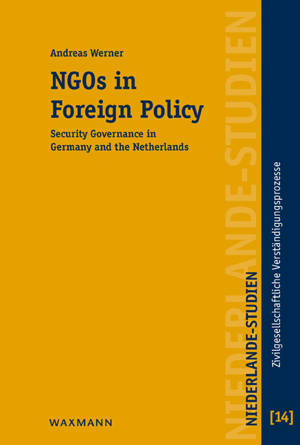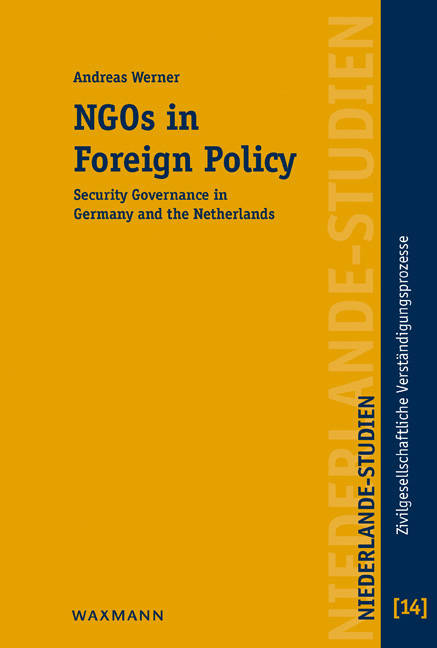
- Afhalen na 1 uur in een winkel met voorraad
- Gratis thuislevering in België vanaf € 30
- Ruim aanbod met 7 miljoen producten
- Afhalen na 1 uur in een winkel met voorraad
- Gratis thuislevering in België vanaf € 30
- Ruim aanbod met 7 miljoen producten
Zoeken
NGOs in Foreign Policy
Security Governance in Germany and the Netherlands
Andreas Werner
Paperback | Engels | Zivilgesellschaftliche Verständigungsprozesse vom 19. Jahrhundert bis zur Gegenwart | nr. 14
€ 50,45
+ 100 punten
Omschrijving
NGOs are seen as important actors of international relations and foreign policy by many scholars. However, such a perspective has rarely been empirically examined. This book therefore takes a look at the access granted to NGOs by the state to the planning and decision-making processes in foreign and security policy. By applying the theoretical concept of security governance, the author takes a look at frameworks such as the German Action Plan Civil Crisis Prevention, the Coordination Committee Humanitarian Aid, the Dutch PSD Network and the National Action Plan 1325. In conclusion, a comparison between Germany and the Netherlands reveals where NGOs can gain more access to foreign security policy. It eventually enables the author to argue how big or small the role of these non-state actors really is and what consequences this implies for both the empirical and theoretical side of foreign policy.
Specificaties
Betrokkenen
- Auteur(s):
- Uitgeverij:
Inhoud
- Aantal bladzijden:
- 280
- Taal:
- Engels
- Reeks:
- Reeksnummer:
- nr. 14
Eigenschappen
- Productcode (EAN):
- 9783830934073
- Verschijningsdatum:
- 13/08/2020
- Uitvoering:
- Paperback
- Formaat:
- Trade paperback (VS)
- Afmetingen:
- 156 mm x 234 mm
- Gewicht:
- 394 g

Alleen bij Standaard Boekhandel
+ 100 punten op je klantenkaart van Standaard Boekhandel
Beoordelingen
We publiceren alleen reviews die voldoen aan de voorwaarden voor reviews. Bekijk onze voorwaarden voor reviews.








